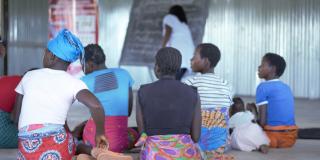
Right now, girls like Ana are in the eye of the storm. Education is the only way to get them on a path to a better future. Will you help them?
Girls are being held back from getting an education
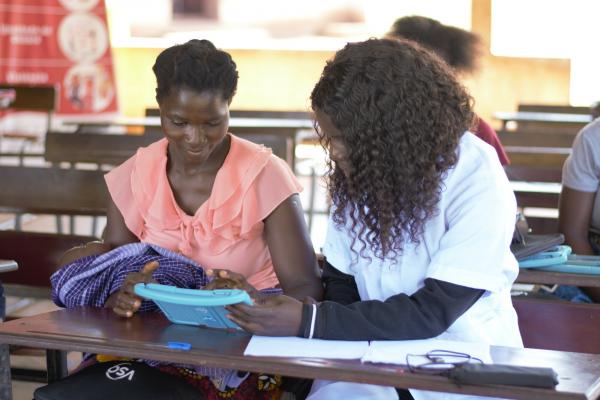
The chance of a better future is being snatched away from girls in Mozambique. Poverty, violence and girls’ status in their society are among the destructive forces they’re up against. Increasingly, so is the climate emergency. Mozambique is one of the countries most vulnerable to climate change in the world 1.
Though people there have done little to cause climate change, they’re first in line for the catastrophic consequences. Extreme weather is getting worse and it’s destroying the homes and lives of marginalised communities.
All this means that girls are in the eye of a storm that is forcing them out of school. With little or no education, they’ll have no choice but to marry early, become mothers, and continue to live in poverty. Early marriage means girls are much more vulnerable to gender-based violence - 46% of women in Mozambique say have experienced domestic, sexual or emotional violence from their partners 2.
It’s not right, and it’s not fair. That’s why we need your urgent help to get girls back on the right path.
Will you give a gift today to help girls get the education they deserve?
46% of women in Mozambique say have experienced domestic, sexual or emotional violence from their partners.
Girls in Mozambique have, on average, less than a year and a half in school, two years below the average schooling among men of 3.4 years.
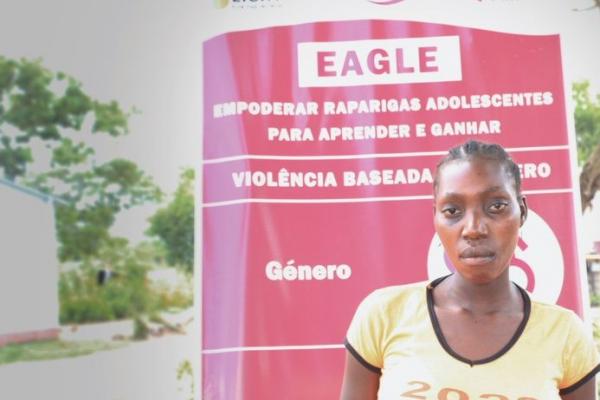
Ana’s story
Ana, who is 16 years old, didn’t go to school as a child, she says “My parents couldn’t afford the expense of supporting my studies.” Ana has a disability; she says she fell ill as a child and no treatment was available. She’s found it difficult to walk ever since.
Four years ago, Ana’s parents were killed by Cyclone Idai and she moved in with her aunt. With nowhere to turn, it seemed hopeless for her – early marriage and pregnancy could have been her future if it wasn’t for VSO’s EAGLE project.
The EAGLE project
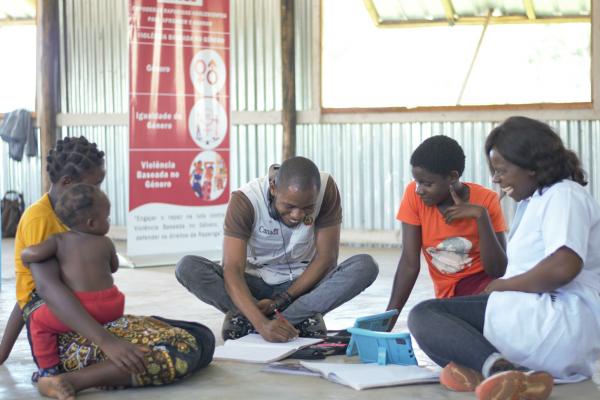
EAGLE stands for Empowering Adolescent Girls to Learn and Earn, and the aim is to help 3,000 out-of-school girls get back into education. VSO volunteers are on the ground right now, teaching girls maths, reading, writing and other life skills. Taking part in the classes means girls can learn about their rights and provide them with skills to earn money.
The project also aims to engage with 4,000 husbands, fathers and other men. Volunteers teach them that a woman’s role in society is not to stay home and have children before she is ready. They are taught that women are equally powerful in the fight against poverty.
With your support, we can train more volunteers to teach girls and help cover costs of equipment like school kits, including solar-powered tablets. These enable girls to continue learning to read and count when cyclones, extreme heat, or personal circumstances prevent them attending classes.
The project has been designed so nothing can stop them learning. Not even a cyclone.
There are thousands more girls out there like Ana who need help.
Please, if you can, donate today to help get them back into school and on the path to a better future.
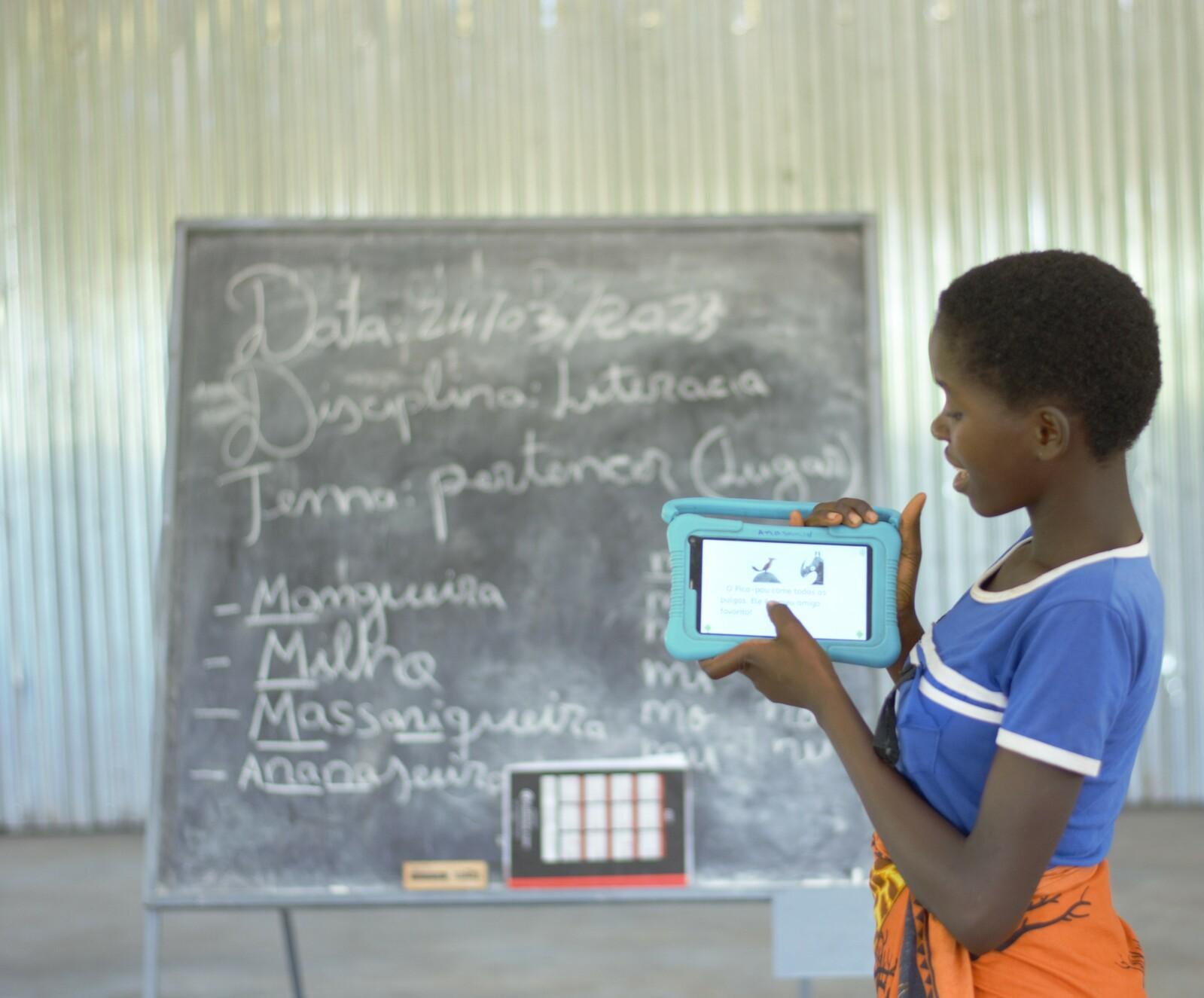
Girls in Mozambique urgently need to go to school. Will you help by donating today?
Read more

The two volunteers empowering girls and young women in Mozambique
Nelma and Carmirene and are two volunteers working on VSO's EAGLE project in Mozambique. For Nelma and Carmirene, education is not just about school, it is about meeting people where they are and using the right tools to challenging harmful norms. Here are their stories.
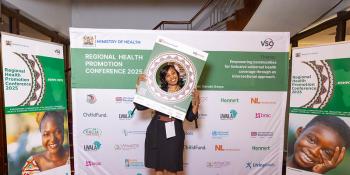
In photos: Our Regional Health Promotion Conference 2025
Check out some of our favourite photos from Regional Health Promotion Conference (RHPC25). This event sought to reimagine Universal Health Coverage through the lens of intersectionality.
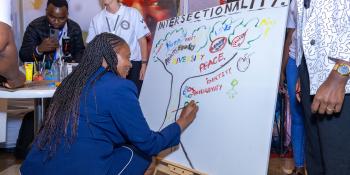
Using intersectionality to create healthy beginnings and hopeful futures
World Health Day brings global attention to the urgent need to end preventable maternal and newborn deaths. Learn more about how our Regional Health Promotion Conference is tackling these issues head on.
